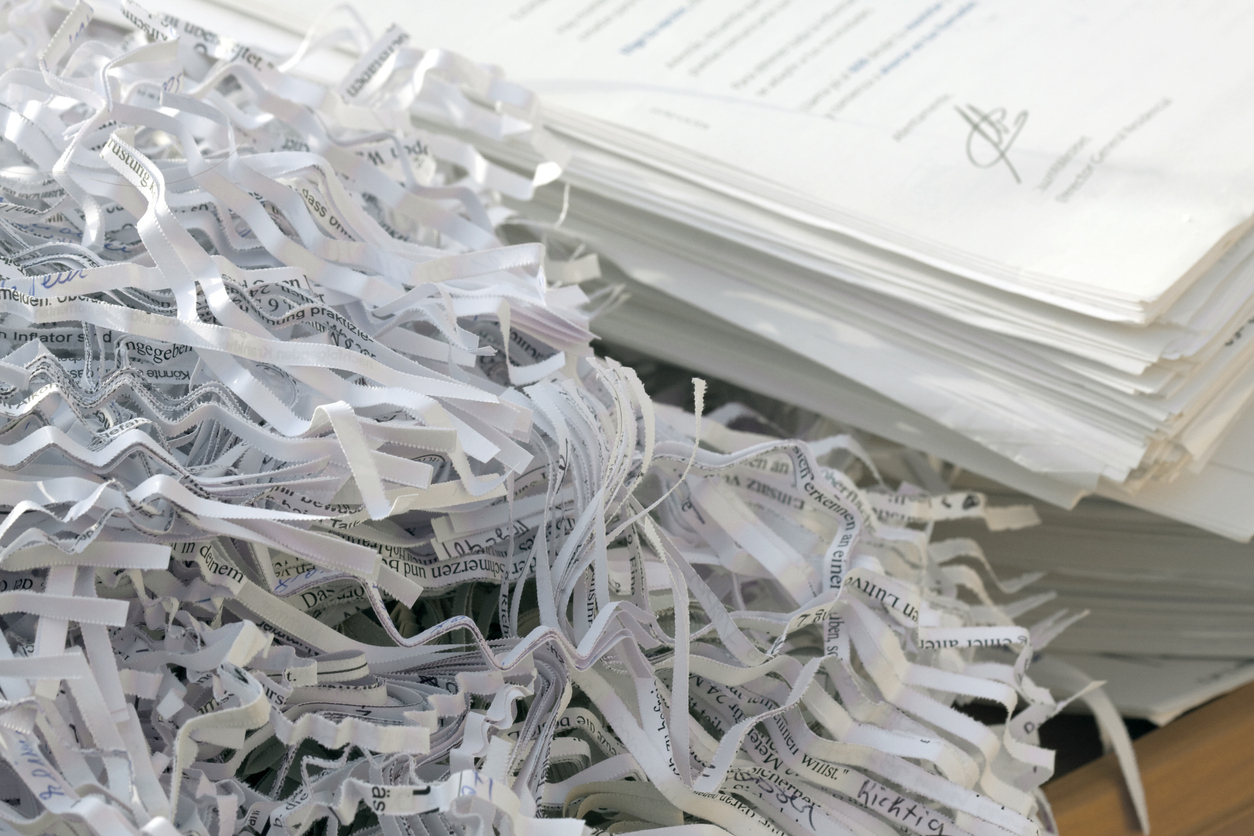
Understanding Document Retention Periods
Proper document retention is more than just a matter of decluttering—it’s a critical component of financial management, legal compliance, and identity protection. Whether you’re an individual taxpayer or a business owner, understanding how long to keep various types of records can help you stay organized, avoid penalties, and safeguard sensitive information.
(IRS) Document Retention Guidelines
The Internal Revenue Service (IRS) provides specific guidance on how long it takes to retain tax-related documents. These timeframes are based on the “period of limitations,” the time during which you can amend a return, or the IRS can assess additional tax:
-
- General Rule – 3 Years: Keep records for at least three years from the date you filed your original return or two years from the date you paid the tax, whichever is later.
- Underreported Income – 6 Years: If you underreport income by more than 25% of the gross income shown on your return, the IRS can audit you for up to six years.
- Fraud or No Return – Indefinitely: If you file a fraudulent return or fail to file a return altogether, retain related records indefinitely.
- Worthless Securities or Bad Debt – 7 Years: If you claim a loss from worthless securities or a bad debt deduction, keep those records for seven years.
Reccommended Retention Periods for Other Documents
In addition to IRS requirements, other documents should be retained based on their relevance to legal, financial, or personal matters:
-
- Bank Statements and Canceled Checks: Retain for 1–7 years, especially if they support tax deductions.
- Pay Stubs: Keep until you reconcile them with your W-2 form at year-end.
- Home Purchase, Sale, and Improvement Records: Maintain these for as long as you own the property, plus at least three years after selling.
- Medical Bills and Explanation of Benefits (EOBs): Retain for five years after treatment ends or the insurance policy expires.
- Legal Documents (e.g., wills, powers of attorney, divorce decrees): Keep indefinitely or as advised by your attorney.
Shredding as a Secure Disposal Method
Once documents have surpassed their retention period and are no longer needed for legal or financial purposes, shredding is the safest disposal method. Shredding ensures that sensitive personal or business information cannot be reconstructed or misused, reducing the risk of identity theft and data breaches.
For added security and compliance, especially for businesses handling large volumes of sensitive data, consider using a certified professional shredding service. These services often provide certificates of destruction and follow industry best practices for data privacy.
Managing and Cleaning Up Digital Documents
As more records are stored electronically, digital document management is just as important as handling paper files. Here are the best practices for organizing and cleaning up your digital records:
-
- Digitize Paper Records: Scan important documents and store them in secure, organized folders. (encrypted with a password if possible)
- Use Encrypted Cloud Storage: Choose reputable services with strong encryption and privacy policies.
- Organize by Category and Year: Create a logical folder structure (e.g., Taxes > 2024, Medical > 2023) for easy access.
- Enable Two-Factor Authentication (2FA): Add an extra layer of security to your cloud and email accounts.
- Regular Backups: Back up your files to an external hard drive or secondary cloud service.
- Purge Outdated Files: Set a schedule to review and delete digital files that have passed their retention period.
- Securely Delete Sensitive Files: Use file-shredding software to ensure deleted files cannot be recovered.
BEST PRACTICES FOR DOCUMENT MANAGEMENT
To maintain an efficient and compliant document retention system:
-
- Create a Retention Schedule: Outline how long each type of document should be kept.
- Conduct Regular Reviews: Schedule periodic audits to identify and securely dispose of outdated records.
- Use Digital Tools: Leverage document management software to automate retention and deletion policies.
- Stay Informed: Keep up with changes in tax laws and industry regulations that may affect retention requirements.
Conclusion
At Command Wealth Management, we help you Take Command of Your Financial Future. We understand the importance of secure document disposal as part of a comprehensive financial strategy. That’s why we’ve proudly hosted annual shredding events for our clients. These events not only offer a convenient and secure way to dispose of outdated documents, but also reflect our ongoing commitment to protecting your privacy and supporting your financial well-being. We invite all our clients to take advantage of this complimentary service and join us in maintaining a clutter-free, secure financial life.
Securities offered through Cambridge Investment Research, Inc., a Broker/Dealer, Member FINRA/SIPC. Investment Advisory Services offered through Cambridge Investment Research Advisors, Inc., a Registered Investment Advisor, offering services in AZ, CT, FL, MA, MI, NC, NY, SC, TX, UT, and VT. Licensed Insurance Professional. ARE-7435 | 20027 – 2020/4/23 *Cambridge and Command Wealth Management are not affiliated.
We are an independent financial services firm helping individuals create retirement strategies using a variety of investment and insurance products to custom suit their needs and objectives. This material has been prepared for informational and educational purposes only. It is not intended to provide, and should not be relied upon for accounting, legal, tax, or investment advice. Investing involves risk, including the loss of principal. No Investment strategy can guarantee a profit or protect against loss in a period of declining values. Any references to protection benefits or lifetime income refer to fixed insurance products, never securities or investment products. Insurance and annuity products are backed by the financial strength and claims-paying ability of the issuing insurance company.
References
[1] How long should I keep records? | Internal Revenue Service
